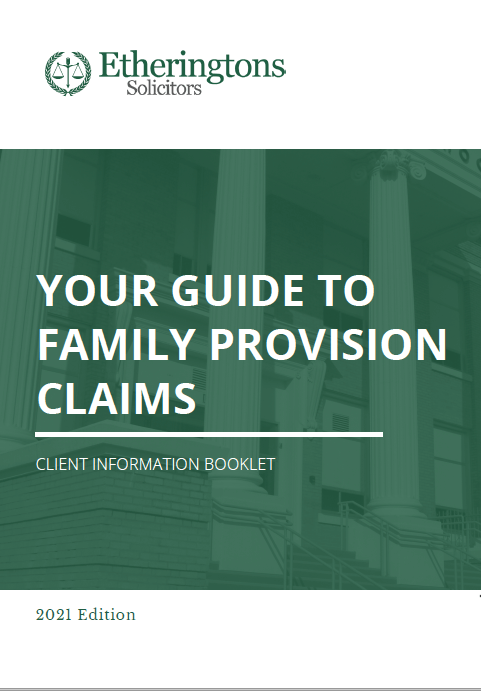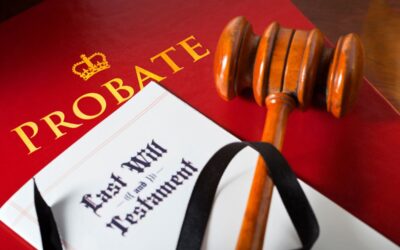Have you been left out of a Will?
Are you considering contesting or challenging a Will?
Are you involved in an estate dispute?
Do you need expert legal advice regarding a suspicious Will?
Do you need estate planning advice?
Planning your Estate – Wills, Attorneys and Guardians
Estate planning requires several steps. Even those with ‘simple’ family structures and modest assets should consider a range of matters to determine how their assets are distributed after death and how their legal, financial and medical affairs are managed if they are incapacitated.
Good estate planning requires:
- Preparing for the inevitable – having a valid Will to appoint an executor / trustee and to determine who receives your assets when you die.
- Planning for the unforeseen – ensuring powers of attorney and appointments of enduring guardian are in place so your legal, financial and medical affairs can be dealt with appropriately if you become ill, disabled or incapacitated.
- Ensuring your estate maintains value – distributing your assets in the most tax-effective manner, using a tailored approach specific to your circumstances.
- Protecting vulnerable beneficiaries – creating testamentary trusts to safeguard at-risk beneficiaries from third party creditors, estranged partners, or depletion of their inheritance due to incapacity, disability or dependency.
- Succession planning – ensuring appropriate arrangements are in place for business and company interests, whether those interests are to be wound up or handed down through generations.
- Minimising the potential for a Will being challenged – understanding family provision and implementing strategies to limit such claims.
Executors and administrators are the legal personal representatives of a deceased person and have significant legal responsibilities. They must ensure they are protected from potential liability in the event of a claim against the estate.
Complete our Will Instruction Form here.
Administering an estate – duties of executors and administrators
In addition to the practical matters required immediately after a person dies, executors and administrators must identify, secure and protect estate assets, pay estate debts and distribute the proceeds of the estate in accordance with the Will or the laws of intestacy. During the administration process, they will often deal with accountants, financial institutions, real estate agents and brokers, usually under the guidance of an estate lawyer.
Executors and administrators often need to consider matters outside their area of expertise, such as tax implications on the sale or transfer of assets, the order of payment of debts (particularly in the case of an insolvent estate), the preparation of estate tax returns and the potential for a family provision claim to be made. Obtaining professional advice and guidance in these areas is essential.
What is Probate?
An executor may need to apply for a grant of Probate through the Supreme Court before administering an estate. The granting of Probate ‘proves’ the Will of the deceased and authorises the executor to deal with the estate. The requirement to obtain probate usually depends on the size of the estate, the nature of estate assets and how they are hold. Most financial institutions will require a grant of probate to release funds over a specified amount. Probate is also required to transfer real estate that is not jointly held.
The application should be made within six months of the deceased’s death and after publishing a notice of intended application on-line with the Supreme Court Registry. The notice warns interested parties (creditors, potential family provision claimants) of the application and provides an opportunity for the relevant claim to be made.
The application and supporting documents are then filed with the Court and, if no requisitions are raised, probate is granted.
Once granted, the estate assets vest in the executor and he or she may deal with the assets and commence administering the estate in accordance with the Will.

Your Guide to Family Provision Claims
The loss of a family member is a distressing event, but it can become even more difficult to learn that you have not been included in the family member’s Will.
This booklet answers some of the most frequently asked questions in relation to Family Provision Claims. Family Provision Claims are often complex and it is important that you are guided by an experienced solicitor.
Can I contest a grant of probate?
Yes, a grant of probate can be contested before the Supreme Court grants probate to the executor. A grant of probate can be contested by lodging a probate caveat.
A probate caveat notifies the Supreme Court that the probate application is being contested. The caveat will prevent the Court from granting probate until the person contesting the grant (caveator) has demonstrated their interest in the estate.
In NSW, the rules surrounding caveats are found under division 10 of the Supreme Court Rules 1970. The rules permit any person with an interest in the estate to “file a caveat in respect of any grant of probate or administration.”
For a probate caveat to be successful, it must challenge the validity of the Will.
What if probate has already been granted?
If probate has already been granted, it is still possible to file a family provision claim against the Will within 12 months of the death of the deceased. A family provision claim offers eligible persons the opportunity to contest a Will if they believe they have been left out of the Will or deserve a higher provision of the estate.
To learn more, please refer to our free Guide to Family Provision Claims or read an interview with our principal Paul Etherington about the intricacies of inheritance disputes.
Family provision claims: Challenging a Will
A Family Provision Claim may be made by an eligible person seeking a share or greater share from an estate. An applicant must prove that the deceased failed to make adequate provision for his or her proper maintenance, education and advancement in life. Eligible persons usually include a spouse, former spouse, de facto partner, child of the deceased, or certain individuals who were in a close personal relationship with the deceased or who were dependent on the deceased at the time of his or her death. Strict timeframes apply for making such claims.
These claims can be fiercely contended causing grief and anxiety to the deceased’s family. An executor may be required to defend a Family Provision Claim made against the estate. The executor has a primary duty to uphold the provisions of a Will however must also ensure that estate assets are preserved. Family Provision Claim and estate disputes can be both complex and contentious. Although most settle out of Court, early legal guidance from a highly experienced Will Dispute Lawyer is important.
If you were left out of a Will and need advice regarding a Will dispute, contact our Wills and Probate Lawyers in North Sydney at [email protected] or call 02 9963 9800 for a no-obligation discussion to explore your legal options.
Read our latest articles about Wills & Estates
How to prevent a Will dispute between siblings
Unfortunately, in the wake of a loved one’s passing, the time for mourning is shared with the complicated process of finalising their estate. This process can cause tensions to arise between family members, especially children, in relation to shares of the...
Contesting a Grant of Probate
What is a grant of probate? A grant of probate is a legal document issued by the Supreme Court that validates a recently deceased person’s Will. The document certifies that the testator (the person who made the Will) has passed away and created a valid Will. It also...
How to protect your Enduring Power of Attorney from misuse
What is an Enduring Power of Attorney? An Enduring Power of Attorney (EPOA) appoints a person, or persons, to make legal and financial decisions on your behalf once you have lost the mental capacity to make these decisions on your own due to a serious illness or...




